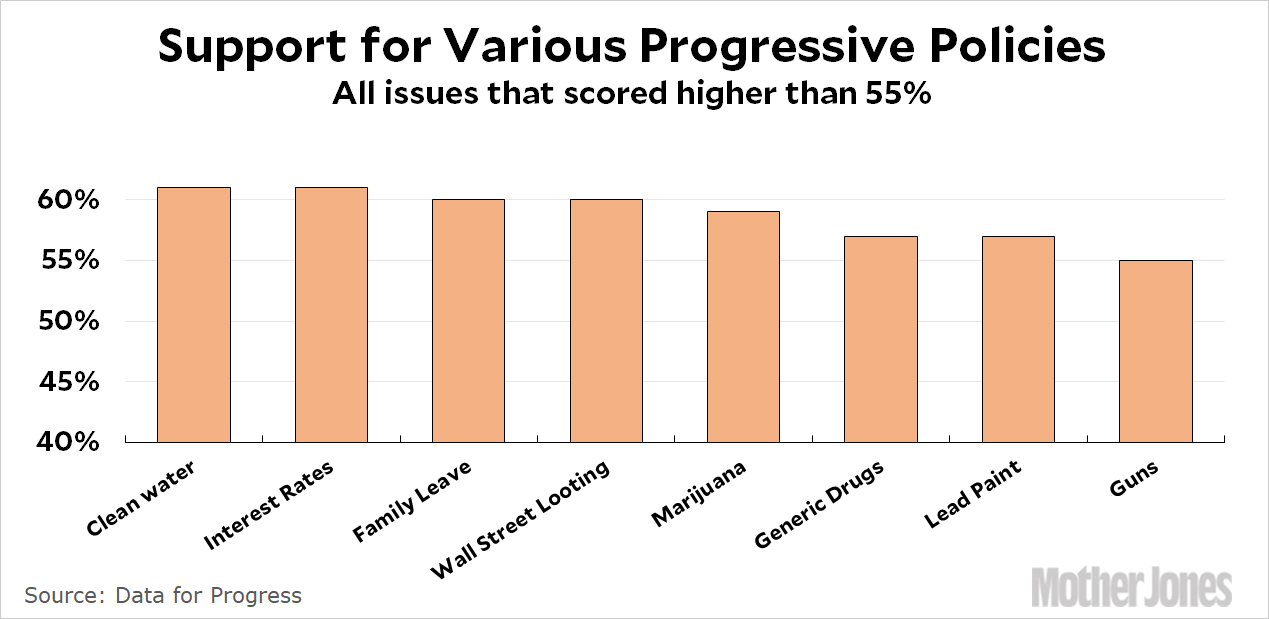Over at Vox, Matt Yglesias shares a new survey from Data for Progress about public support for various progressive policies. Yglesias is able to find a silver lining here, but I sure don’t. Here’s a breakdown of all the issues that scored at least 55 percent support:

DFP read each respondent an argument for and against each policy, and as you can see this tanked the results: not a single one polled higher than 61 percent. Even vague, feel-good no-brainers like clean air, lead paint cleanup, and “stopping Wall Street looting” couldn’t break the 61 percent barrier, and that’s crazy. I mean, who’s against any of that?
Of the other five, two are pretty small bore: allowing the feds to broaden the licensing of generic drugs and allowing police or family to petition a judge to take away guns from someone who presents a danger. So that leaves a grand total of three policy proposals that are both meaningful and poll above 55 percent:
- Limiting interest rates on credit cards.
- Guaranteeing 12 weeks of family leave for childbirth or serious medical problems.
- Legalizing marijuana.
Credit card interest rates are, in practice, governed by a Supreme Court decision from 1978, so there’s little that a president could do about that. Legalizing marijuana would be hard since it’s governed by international treaties.
So there’s only one thing left: guaranteeing 12 weeks of family leave. This is popular, and as far as I know, it’s also constitutional.
The DFP list is pretty thorough, which means that this is it. There’s precisely one issue that’s (a) popular, (b) feasible, and (c) big enough to be a campaign issue. Medicare for All polls below 50 percent. Canceling student loans polls below 50 percent. A carbon tax polls below 50 percent. The Green New Deal polls below 50 percent. Border decriminalization polls way below 50 percent.
There’s really not much to work with here. I chose 55 percent as a cutoff because I was being generous: the truth is that almost anything below 60 percent is likely to be a loser once Republicans start going after it. I just don’t see any progressive issues that look like sure campaign winners.
But this isn’t as bad as it looks. There are plenty of issues that are on the edge and might be a net positive with suburban voters that Democrats need. What’s more, policies like this aren’t likely to be what wins or loses the 2020 election anyway. November is going to be a referendum on Donald Trump, and what Democrats really need is good ways to convince folks on the center right that Trump is even worse than they think. Maybe DFP will poll that next.














